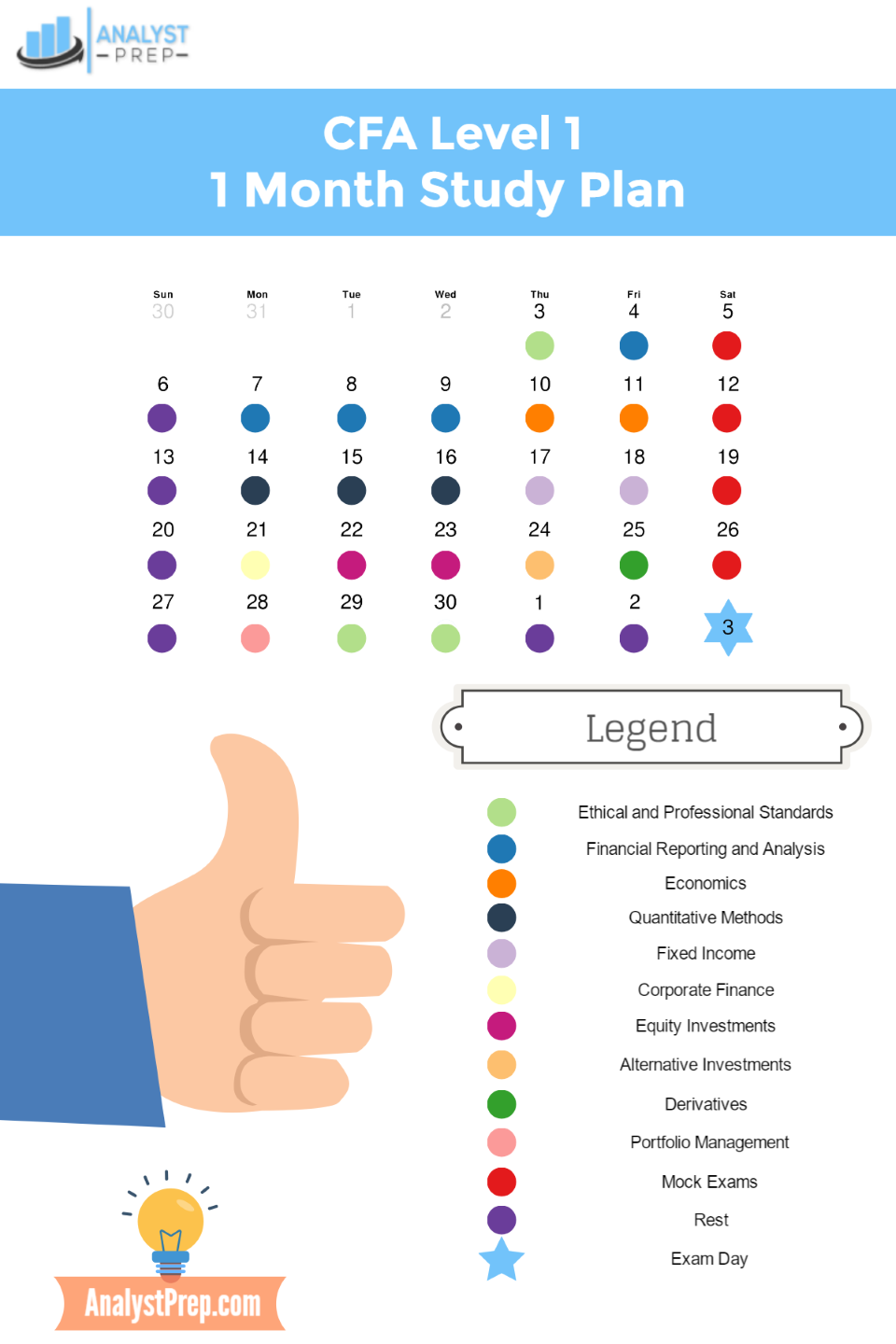Breaking Down the 2025 CFA® Exam Rule ...
1. Introduction You’re not just signing up for a test. The CFA exam... Read More
There is only one month to go before the Level I CFA exam, and you should already be performing quizzes and mock questions. If it’s not the case, then it’s definitely time to take a deep breath and buckle down to the daunting task ahead.
This study plan takes into consideration that you already read and reviewed all chapters or summaries. In my opinion, the last month should be dedicated only to practice questions and final revision.
What I am proposing here is a precise 30-day schedule. On CFA Institute’s website, we find that the CFA exams will be held on Saturdays only. In other words, the study plan will always start on Thursday and will always end on a Friday.

If you’re still looking for a question bank and mock exams, have a look at our preparation materials by clicking on this link. Remember that about 61% of candidates revealed in the 2015 CFA Institute survey that they used third-party preparation materials, in addition to the assigned materials and that you then chance of passing the Level I CFA exam on your first attempt is basically one in three. I know you don’t want to fail the exam and have to repay registration fees, so stack the odds in your favor by using all of the study material you deem suitable.
Yes, it’s possible to pass CFA Level 1 in 1 month with focused study, disciplined daily schedules, and frequent practice with mock exams and quizzes.
You should aim to study about 6 to 8 hours daily to cover the entire CFA Level 1 curriculum and practice sufficiently within one month.
Prioritize Ethics, Financial Reporting & Analysis, Quantitative Methods, and Fixed Income since they carry the highest exam weight and scoring potential.
It’s very challenging but achievable with a strict study schedule that includes 3–4 hours on weekdays and 8+ hours on weekends.
Use a structured daily study plan combining reading, formula review, and practice questions, with the last week dedicated to mock exams and weak area review.
AnalystPrep offers a comprehensive question bank, quizzes, and mock exams tailored for accelerated CFA Level 1 study plans.
Balance both, but prioritize practice questions to reinforce concepts and improve exam readiness, especially in the final weeks.
There is only one month left before the exam and the only way for you to have enough time to review the whole curriculum is to be organized. This study schedule is the first step in that direction but there is still work to do to adapt it to your needs. Don’t hesitate to take into account your strengths and weaknesses when planning your own. Good Luck!
Ready to test your knowledge daily?
Reinforce your 1-month plan with AnalystPrep’s CFA quizzes and topic-specific practice sets.
1. Introduction You’re not just signing up for a test. The CFA exam... Read More
If you are reading this post, there is a high chance that you... Read More
Get Ahead on Your Study Prep This Cyber Monday! Save 35% on all CFA® and FRM® Unlimited Packages. Use code CYBERMONDAY at checkout. Offer ends Dec 1st.